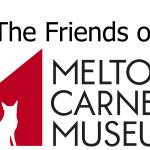Free School Trips
We are currently developing our educational offer and need schools to test our new session. Detail of the session can be found below
The Chase to Melton!
Audience: KS2
Duration: 1.5 hours
Location: Melton Carnegie Museum
Main Objective: To understand the role fox hunting had in the history of Melton Mowbray
Session Description:
Whether you're for or against it, Fox Hunting has undoubtedly had an impact on the development of Melton Mowbray and the surrounding area. Through a series of interactive exercises and tasks pupils will learn about the history of fox hunting, the impact on the local economy and the consequences of changing opinions towards fox hunting.
Learning Outcomes:
- Understand more about foxes and hounds
- Be able to explain how Melton Mowbray grew as a town as a result of fox hunting
- To understand the impact fox hunting had on the industry of Melton Mowbray
- Begin to consider how opinion changed towards fox hunting and the resulting consequences
National Curriculum links:
History:
- A local history study
- Construct informed responses that involve thoughtful selection and organisation of relevant historical information
- Understand how our knowledge of the past is constructed from a range of sources.
- Gain historical perspective by placing their growing knowledge into different contexts, understanding the connections between local, regional, national, and international history; between cultural, economic, military, political, religious, and social history; and between short- and long-term timescales
Geography:
- Name and locate counties and cities of the United Kingdom, geographical regions and their identifying human and physical characteristics, key topographical features (including hills, mountains, coasts, and rivers), and land-use patterns; and understand how some of these aspects have changed over time
Citizenship:
- To reflect on spiritual, moral, social, and cultural issues, using imagination to understand other people's experiences
- To think about the lives of people living in other places and times, and people with different values and customs
As part of the pilot, we need teacher and student feedback as well as permission to take photos of the students which will be used for promotional purposes. If you are interested in taking part in one of the pilots, please contact us: meltonmuseum@leics.gov.uk
Paid School Trips
We have successfully piloted the Invaders! educational offer and it is now available as a paid school trip. Detail of the session can be found below.
Invaders!
Audience: KS2
Duration: 2 hours
Location: Melton Carnegie Museum
Main Objective: To understand about Anglo-Saxons and Vikings
Session Description:
The area around Melton Mowbray has more Viking place names than anywhere else in the country but Melton itself has an Anglo-Saxon name. This session is led by Aescwyn an Anglo-Saxon woman married to a Viking settler who lived on a farm in the area in the 9th century. She tells the children about her life in the Danelaw and the children learn about Anglo-Saxon and Viking society and beliefs through role play, object handling and storytelling. The children will also spend some time exploring the museum.
Learning Outcomes:
- To understand where Anglo-Saxons and Vikings came from and where they settled
- To understand how names of places give us clues to their history
- To know some customs and traditions of Anglo-Saxon and Vikings
- To compare Anglo-Saxon daily life to how life is today
- Where the Anglo Saxons and Vikings fitted into the timeline of English history
National Curriculum links:
History:
- A local history study
- Britain's settlement by Anglo-Saxons and Scots
- Anglo-Saxon invasions, settlements, and kingdoms: place names and village life
- Anglo-Saxon art and culture
- The Viking and Anglo-Saxon struggle for the Kingdom of England to the time of Edward the Confessor
- They know and understand the history of these islands as a coherent, chronological narrative, from the earliest times to the present day
- They should construct informed responses that involve thoughtful selection and organisation of relevant historical information
- They should understand how our knowledge of the past is constructed from a range of sources
- Gain historical perspective by placing their growing knowledge into different contexts, understanding the connections between local, regional, national, and international history; between cultural, economic, military, political, religious, and social history; and between short- and long-term timescales
Geography:
- interpret a range of sources of geographical information, including maps, diagrams, globes, aerial photographs, and Geographical Information Systems (GIS)
- use maps, atlases, globes, and digital/computer mapping to locate countries and describe features studied
- name and locate counties and cities of the United Kingdom, geographical regions and their identifying human and physical characteristics, key topographical features (including hills, mountains, coasts, and rivers), and land-use patterns; and understand how some of these aspects have changed over time
Citizenship:
- To reflect on spiritual, moral, social, and cultural issues, using imagination to understand other people's experiences
- To think about the lives of people living in other places and times, and people with different values and customs


